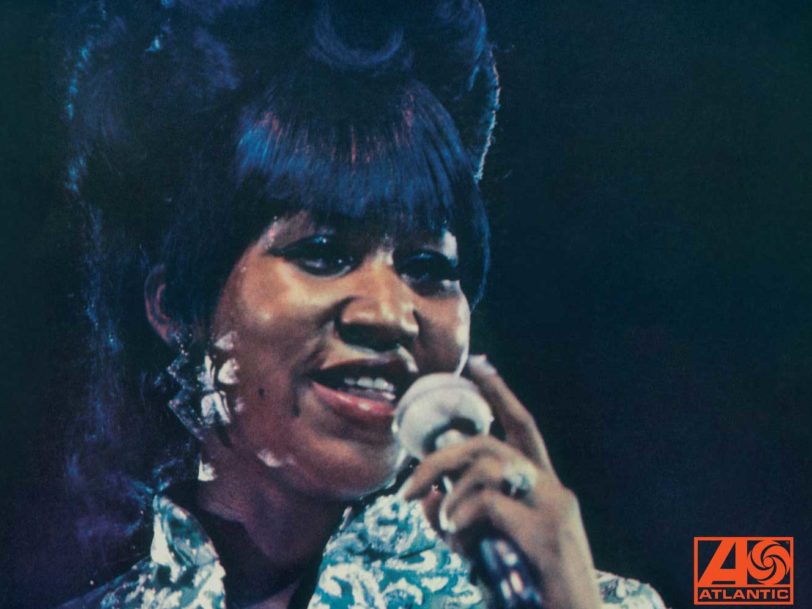Gone is the last name. It’s a statement. Aretha: Lady Soul. The album cover: a strip of blue with red typography and a photo of the woman herself, jewelled and coiffed – so much so that they don’t even get all her hair in the photo; microphone in hand with such natural ease it may as well be just another finger.
Kicking off the record, whose sleeve promises so much, is Chain Of Fools. That guitar line is stark, rubbery and exciting. It’s intriguing that Aretha Franklin is not the first thing you hear on her own album. You wait tentatively for her voice, and when it arrives it does so with a sound that travels up from the gut with ferocity and intent. Here is Lady Soul.
Listen to Lady Soul, here
Soaring vocals, a chorus of voices
Chain Of Fools’ pounding bass drum, the gentle puffed vocals of backing singers The Sweet Inspirations (Cissy Houston, Sylvia Shemwell, Myrna Smith and Estelle Brown) and younger sister Carolyn propel Aretha’s soaring vocal on and on. The lyrics make a nod to Aretha’s gospel roots, the repeated “chain” recalling slavery and the malicious treatment of the African diaspora at the hands of white America. It’s a plea, exhausted and frustrated, but with the promise of hope that feels tantalisingly within reach when sung in a church; lyrics lifted on a chorus of voices.
But here the chain refers to the shackles of a bad relationship; of a cheating beau and of the fury of being made a fool of. “For five long years/I thought you were my man/But I found out/I’m just a link in your chain,” Franklin sings with the indignant cry of a poorly treated woman who can’t bring herself to leave just yet. “One of these mornings/The chain’s gonna break/But up until then/I’m going to take all I can take.” She’s locked in for now but, with a delivery as powerful as that, you know it won’t be for much longer.




